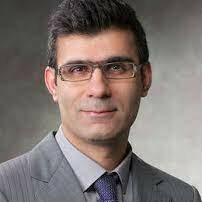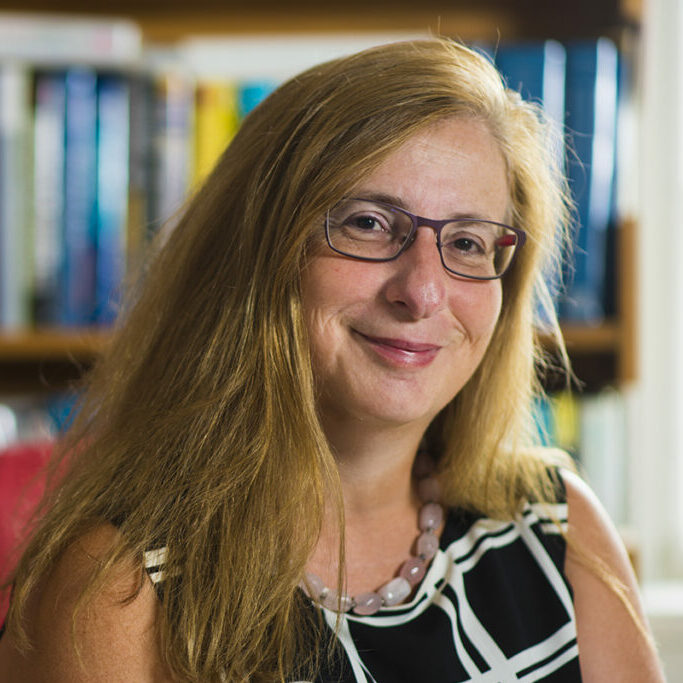THE [SOAR] TEAM

chanchal roy
Program Director, NSERC CREATE in Software Analytics Research (SOAR) and Professor, Department of Computer Science, University of Saskatchewan
Website: clones.usask.ca
More Info
Chanchal Roy is Professor of Computer Science at University of Saskatchewan (USask). He is the lead and Program Director of an NSERC CREATE graduate program in Software Analytics Research (SOAR) and a co-lead of the Data Management and Repository group of an NSERC Canada First Research Excellence Fund (CFREF) on Food security. As the co-author of the widely used NiCad code clone detection system, he has published more than 190 refereed publications that have been cited more than 9,000 times. He works in the broad area of software engineering, with particular emphasis on software clone detection and management, software evolution and maintenance, recommender systems in software engineering, and big data analytics in software engineering. His contributions to the software maintenance community, and particularly to the software clones community, have been highly influential, winning Most Influential Paper awards at SANER 2018, ICPC 2018 and SANER 2021. He has been recognized with the New Scientist Research Award of the College of Arts and Science at USask, the University wide New Researcher Award, GSA Advising Excellence Award and a 2018 Outstanding Young Computer Science Researcher Award by CS-Can/Info-Can. Dr. Roy was a vision keynote speaker at WCRE/CSMR 2014 on software clones, and a keynote speaker at IWSC 2018, IEEE R10HTC 2018, BIM 2021 and STI 2021. He has attracted over $4M in external funding since joining the USask, including an NSERC Discovery Accelerator Supplement Grant, NSERC CREATE grant, CFI infrastructure grant and leading major roles in two CFREF grants in Food Security and Water Security. His recent work on a new way of searching Stack Overflow was featured in Stack Overflow blogs which then subsequently was featured in most of the major tech news websites and blogs such as ACM Tech news, TechRepublic, Hacker News, SD Times, and reddit.

Zadia Codabux
Assistant Professor at the University of Saskatchewan and manages the Software Analytics Research (SEARCH) group
Website: cs.usask.ca/faculty/zadiacodabux
More Info
Zadia’s research interests include empirical software engineering, technical debt, data mining, and software security. She has received the IEEE Computer Society TCSE Distinguished Paper Award at SANER 2022 and Best Paper Research Track (First Place) at APSEC 2020. She is the principal investigator or co-principal investigator or collaborator on the following grants: NSERC discovery, NSERC CREATE, NSERC USRA, Mitacs Globalink, SSHRC Insight, and CFREF. She is also passionate about equality, diversity, and inclusion initiatives and is a regular attendee, speaker, and reviewer for the Computing Research Association’s Committee on Widening Participation in Computing Research, Grace Hopper Celebration, and the National Center for Women & Information Technology. She has been on the organizing committee of TechDebt (2019-2022) and SANER (2022) and the program committee of top-ranked conferences, namely, ASE, FSE, ICSME, ICPC, CHASE, SANER, SEAA, TechDebt, and a regular reviewer for journals such as IEEE Software, IST, JSS, and EMSE.

Hadi Hemmati
Associate Professor at the electrical and software engineering department University of Calgary
Website: profiles.ucalgary.ca/hadi-hemmati
More Info
Previously Hadi Hemmati was an assistant professor at the computer science department, University of Manitoba, a postdoctoral fellow at University of Waterloo and Queen’s university. He received his PhD from University of Oslo, Norway. He is the director of Software Engineering and Analytics Laboratory at university of Calgary. His main research interests are automated software engineering (with a focus on software testing, debugging, and repair), and trustworthy AI (with a focus on robustness and explainabilty). His research has a strong focus on empirically investigating software/ML engineering practices in large-scale industrial systems. He has been a PI on multiple industry research projects in different domains such as IT, aviation, insurance, urban development, fintech, health, and beyond. He has been the recipient of ACM Distinguished paper award at ICSE 2013 and IEEE Software Best paper award at ICSE 2017. He is also an IEEE Senior Member, a Professional Engineer (PEng) in Alberta (APEGA), and holds a faculty fellowship at Schulich School of Engineering at University of Calgary. He is a coordinating editor at Empirical Software Engineering Journal.

Ali Mesbah
Professor at the University of British Columbia (UBC) where he leads the Software Analysis and Testing (SALT) research lab
Website: people.ece.ubc.ca/amesbah/
More Info
Ali Mesbah’s main area of research is in software engineering, and his research interests include software analysis and testing, web and mobile-based applications, software maintenance and evolution, debugging and fault localization, and automated program repair. He has published over 70 peer-reviewed papers and received numerous best paper awards, including two ACM Distinguished Paper Awards at the International Conference on Software Engineering (ICSE 2009 and ICSE 2014). He is the recipient of a Killam Accelerator Research Fellowship (KARF) award (2020), a Killam Faculty Research Prize (2019) at UBC, and was awarded an NSERC Discovery Accelerator Supplement (DAS) award in 2016. He served as Associate Editor of the IEEE Transactions on Software Engineering (TSE) and regularly serves on the program committees of numerous software engineering conferences such as ICSE, FSE, ASE, ISSTA, and ICST.

Banani Roy
Assistant Professor and Director of the Interactive Software Engineering and Analytics Lab at the Department of Computer Science, University of Saskatchewan
Website: ise.usask.ca/broy/
More Info
Banani Roy’s research has involved supporting multi-disciplinary research working with research teams on two NSERC Canada First Research Excellence Fund (CFREF) on Food Security and Water Security in building a Cloud-based Big Data Analytics for Crop Phenomics platform (P2IRC Cloud) and on re-engineering and migrating a popular hydrological modelling system to next generation workflow based systems for Global Water Futures (GWF) respectively. As co-applicant of the NSERC CREATE program in Software Analytics Research (SOAR), she has been exploring on Software Analytics, exploiting her experience working on multi-disciplinary data analytics projects and her PhD work and industrial experience on computer supported collaborative work and interactive software engineering. Her research areas include Empirical Software Engineering, Big Data Analytics, Software Renovation and Interactive Software Engineering. She has received several awards including Best Paper awards and Best Poster awards. She is often involved with conference organizations including the Program Co-Chair of SCAM 2022.

Kevin Schneider
Professor and Department Head, Computer Science, University of Saskatchewan. Director of the Software Research Lab, University of Saskatchewan.
Website: cs.usask.ca/people/faculty%20profiles/kevin-schneider.php
More Info
Kevin Schneider (h-index 37; i10-index 89) has held a number of senior leadership positions at the university, including Vice-Dean Science and Associate Vice-President Research (Interim). Previously he was President & CEO of Legasys Corp., a software research and development company focused on automated software engineering techniques, software renovation, and source code analysis and transformation. He continues to promote software entrepreneurship and work closely with industry. He has published over 100 articles, and in the past six years, supervised/co-supervised over 25 graduate students, directly led projects with over $6M in external research funding (e.g., Global Water Futures Core Computer Science Project), and helped secure and lead major institutional awards (e.g., two CFREFs). In addition to his leadership skills and industry experience, he brings to SOAR expertise in advanced software analytics, visualization, and data management techniques to support software evolution and renovation, and to support data-intensive discovery in a number of sectors, including water security, food security, mining, and health. Previously he was involved in the NSERC CREATE SWaGUR: Saskatchewan-Waterloo Games User Research.

Natalia Stakhanova
Canada Research Chair in Security and Privacy, an Associate Professor at the University of Saskatchewan
Website: nataliastakhanova.com/
More Info
Natalia Stakhanova is a former NB Innovation Research Chair in Cybersecurity at the University of New Brunswick. Her work focuses on software security, more specifically, malware analysis, software protection, and code attribution. Working closely with the industry on a variety of R&D projects, she developed a number of technologies that resulted in 3 patents in the field of computer security and have been adopted by high-tech companies. Dr. Stakhanova is the recipient of numerous recognitions and awards including the top 20 Women in Cybersecurity, the CyberNB Recognition Award, the McCain Young Scholar Award and the Anita Borg Institute Faculty Award.

Eleni Stroulia
Professor, CS, UAlberta, and the Project Director, Integrated Strategic Data Systems with the Faculty of Science, at the University of Alberta
More Info
From 2011-2016, Eleni Stroulia held the NSERC/AITF Industrial Research Chair on Service Systems Management, with IBM. In 2011, as a co-lead of the Smart-Condo team received the UAlberta Teaching Unit Award. She brings to SOAR her passion for interdisciplinary research and her experience in leadership roles with GRAND and AGE-WELL NCEs. In 2018 she received a McCalla professorship, and in 2019 she was recognized with a Killam Award for Excellence in Mentoring. She has supervised more than 60 graduate students and PDFs, who have gone forward to stellar academic and industrial careers. She is involved with another CREATE program at York on Dependable Internet of Things Applications (DITA) which has a completely different focus. Her experience from DITA will be immensely helpful as regards to industry collaboration, leadership and meeting research objectives.

